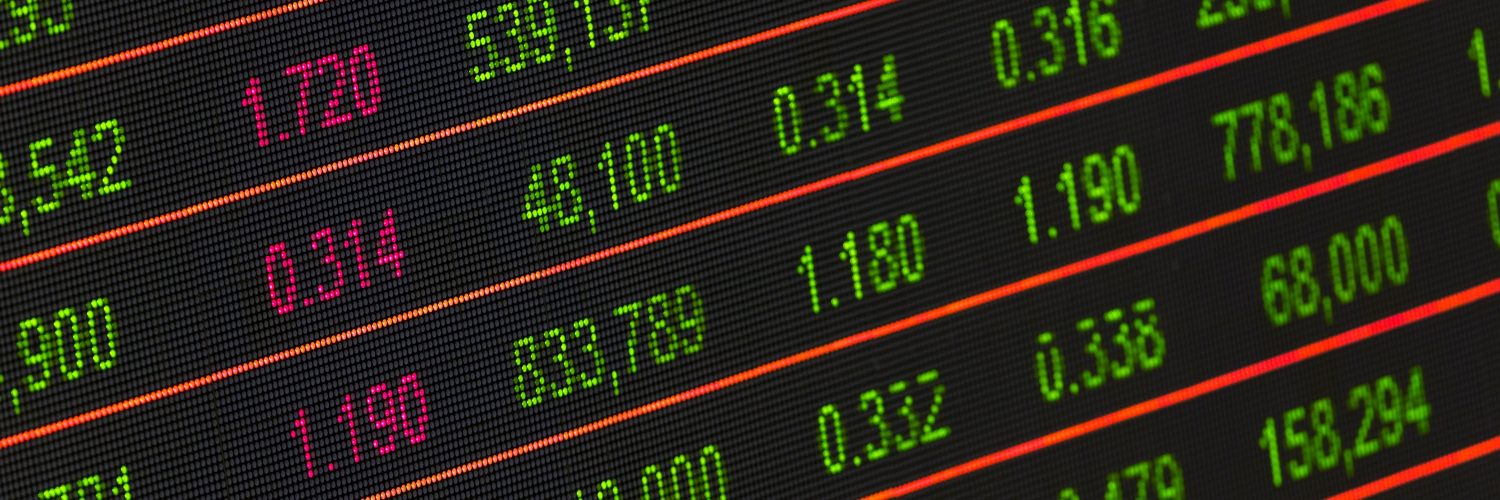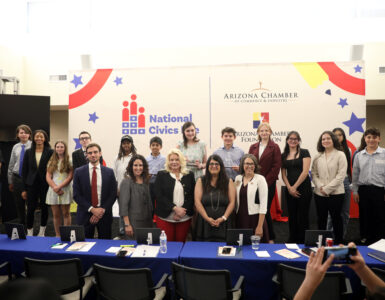The White House’s senior adviser on economic affairs outlined what Arizona businesses can expect if President Donald Trump is re-elected during an event sponsored by the Arizona С��ñֱ��app of Commerce and Industry and the Arizona Bankers Association last week.
The nation’s top economic adviser, Larry Kudlow, also urged the business community here to reject Arizona’s Proposition 208 tax increase.

Pushing Arizona’s income tax rates higher during the pandemic would be foolish timing, said Kudlow, the assistant to the president for economic policy and the director of the National Economic Council.
“While men and women are returning to work, this is not the time to raise taxes,” said Kudlow, who leads the coordination of the president’s domestic and global economic policy agenda.
Unwise timing for a hike in income tax rates
If passed, the so-called “Invest in Ed” proposition will raise the state’s top income tax rate by 77.7 percent, making Arizona’s top income tax rate higher than every other state in the West except California, and one of the ten-highest nationwide.
“We are coming out of a pandemic contraction. We do not want to be removing money from the economy,” Kudlow warned.
Higher income tax rates would erode Arizona’s economic edge at a critical time. Right now, Arizona is seen as a desirable location to live, play and do business.
“Arizona’s personal and business taxes have been moderate down the years. It’s a hot sunbelt state and you don’t want to destroy that story,” he said.
Data speaks to successes
During the event, Kudlow detailed Trump’s platform for the economy moving forward, the administration’s successes so far, and efforts to help those still struggling from pandemic disruptions including small businesses, the airline industry and the unemployed.
One only has to look at data from the U.S. Census Bureau, the U.S. Bureau of Labor Statistics and the Federal Reserve to count the success of the administration’s economic policies over the past four years, he said.
Prior to the pandemic, the standard of living went up for the first time in 20 years, corporate and individual income taxes dropped, and regulatory red tape was reduced, Kudlow said.
“Inequity fell, poverty fell, unemployment fell, the living standard rose and family income rose,” he said.
Platform forward would be a repeat of past four years
Basically, the economic plan for the next term would be a repeat of the White House’s guiding principles the past four years, he said.
“That is, lowering business taxes across the board, lowering individual taxes, and rolling back costly and burdensome regulations,” Kudlow said.
Keeping the economy open and reopening schools while practicing all the lessons learned about masking, social distancing and hygiene is a top priority, he said.
Also high on the list are investment in new technology advances in energy, particularly in natural gas fracking and horizontal drilling, and the brokering of “better” global trade deals to mimic the success of the new free trade agreement, the United States-Mexico-Canada Agreement (USMCA).
Good news for full economic recovery
A rash of economic indicators show that the pandemic recovery will be V-shaped, Kudlow said. A V-shape recovery is characterized by a quick and sustained recovery in measures of economic performance after a sharp economic decline.
Currently, about 80 percent of the economy has recovered and about 50 percent of the unemployed are back to work, he said. Industry sectors like construction, auto sales and manufacturing, and certain retail sectors are seeing “booming” growth.
Meanwhile, unemployment is dropping. Since the country was shut down at the start of COVID-19, about 14 million workers are back to work, bringing unemployment down to 7.9 percent, he said.
CARES Act helped keep businesses, individuals afloat
Part of the recovery is due to the CARES Act economic stimulus package that was passed by Congress and signed by the president to help the country survive the shutdown.
About 12 million people are still unemployed, he said. Moving forward, Congress is trying to broker another package to help those still struggling.
“We look at this (package) as being smart and targeted,” Kudlow said. “The other side sees this as a political and ideological wish list.”
Nevertheless, the Republicans and the president are willing to “compromise and put up more dollars to make a deal.”
Meanwhile, $139 billion from the act is still waiting to be allocated. Congressional members need to pass stand-alone bills to appropriate the funding to aid those still in need.
President “rewards success”
In conclusion, Trump’s economic policies “have benefited those who need it most,” Kudlow said. A vote for Trump will be a vote for America’s recovery.
“He’s a president who wants to reward success and promote workers. Whereas my friends on the other side seem to always want to punish success.”
















Add comment